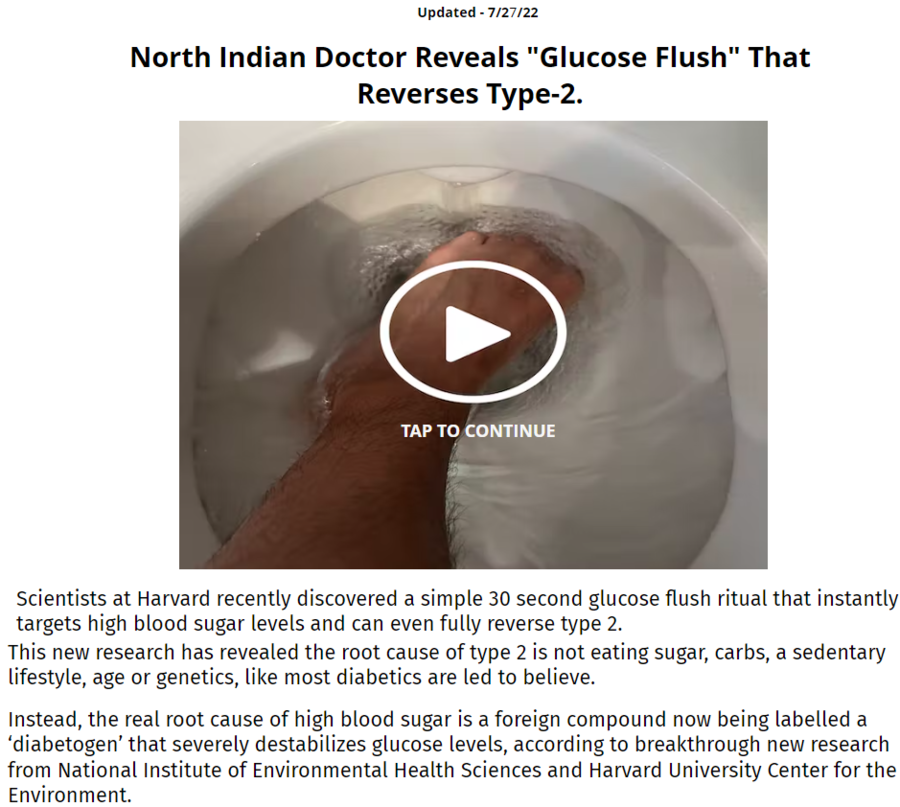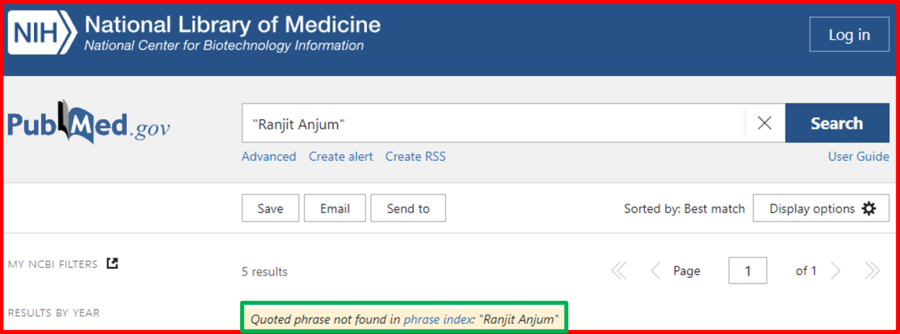
Did Harvard University scientists discover a "Glucose Flush" that reverses Type 2 diabetes? No, that's not true: In emails to Lead Stories, representatives for the Harvard University Center for the Environment (HUCE) and the National Institute of Environmental Health Sciences (NIEHS) said they were unfamiliar with the research or the purported author of the study.
The claim appeared in an article (archived here) published by Happy Together Inc on July 27, 2022, under the title "North Indian Doctor Reveals 'Glucose Flush' That Reverses Type-2." It opened:
Scientists at Harvard recently discovered a simple 30 second glucose flush ritual that instantly targets high blood sugar levels and can even fully reverse type 2.
This new research has revealed the root cause of type 2 is not eating sugar, carbs, a sedentary lifestyle, age or genetics, like most diabetics are led to believe.
Instead, the real root cause of high blood sugar is a foreign compound now being labelled a 'diabetogen' that severely destabilizes glucose levels, according to breakthrough new research from National Institute of Environmental Health Sciences and Harvard University Center for the Environment.
This new finding has shocked doctors and pharmaceutical industries who are now understood to believe their own medication is considered 'highly ineffective', according to Doctor Ranjit Anjum, lead researcher.
This is what the article looked like at the time of writing:
(Source: Happy Together Inc screenshot taken on Wed Aug 10 15:30:01 2022 UTC)
The article specifically cites "breakthrough new research from National Institute of Environmental Health Sciences and Harvard University Center for the Environment" for the "'Glucose Flush' That Reverses Type-2" diabetes. It also identifies the lead researcher as "Doctor Ranjit Anjum." None of these things are true.
In an August 11, 2022, email to Lead Stories, a spokesperson at the Harvard University Center for the Environment (HUCE) said:
HUCE is not affiliated or involved in this research. I have no information about it or the author.
Christine Bruske Flowers, director of the Office of Communications and Public Liaison at the National Institute of Environmental Health Sciences (NIEHS), provided a similar response to Lead Stories in another August 11, 2022, email:
Dr. Ranjit Anjum and the referenced study are unknown to the National Institute of Environmental Health Sciences.
In addition, Lead Stories searched the National Library of Medicine (NLM) at the National Institutes of Health for "Ranjit Anjum," but found no results (green box inside the red box below). The NLM bills itself as the world's largest biomedical library with "more than 34 million citations for biomedical literature from MEDLINE, life science journals, and online books":
(Source: National Library of Medicine screenshot taken on Thu Aug 11 15:41:16 2022 UTC)


















